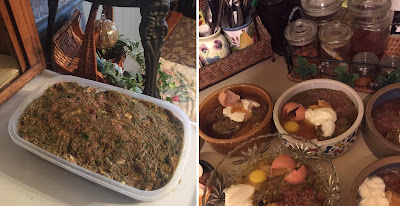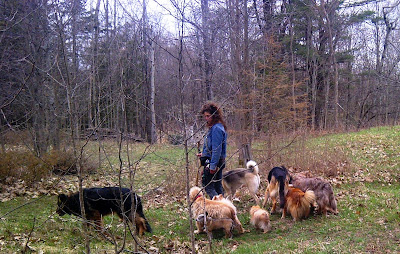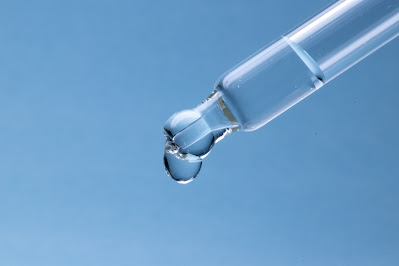Gingivitis and Periodontal Disease in Dogs and Cats, Natural Treatment and Prevention, Causes and Symptoms
★ 4 min read
In this article:
- Common Causes of Gingivitis and Periodontal Disease
- Stages of Periodontal Disease
- Gingivitis
- Periodontitis
- Plaque
- Signs and Progression of Periodontal Disease
- Stage One, Earl Signs of Gingivitis
- Stage Two, Periodontitis
- Natural Treatments
- Transition to a Species Appropriate Diet
- Natural Herbal Treatments
- Natural Prevention
- The Primary Defense
- Species Appropriate Diet
One of the most common health problems in dogs and cats over two
years of age, is gingivitis and periodontal disease. 85% of dogs and cats two years of
age or older suffer from periodontal disease.
1.0 Common Causes of Plaque and Periodontal Disease
Example of common causes of plaque and periodontal disease include:
- Exposures that damage the body's protective system (gut biome, oral biome, immune system, organs), for example:
- Species inappropriate diet.
- Including: dry food, canned and wet food, air dried,dehydrated, freeze dried diets.
- Cooked diets and raw diets that contain species inappropriate components.
- Treats that contain species inappropriate components.
- Use of conventional drugs, conventional flea, tick, heartworm, intestinal worming treatments and preventatives.
- Supplements that contain in appropriate ingredients.
- Inappropriate personal care products.
- Genetic predisposition.
- Autoimmune issues and disease.
- Heart issues.
- Kidney issues.
2.0 Stages of Periodontal Disease
2.1 Gingivitis
The first stage of periodontal disease is called
‘gingivitis’. Gingivitis causes inflammation of the gums however this is a
completely reversible condition, that when caught in a timely fashion will not
cause permanent damage.
2.2 Periodontitis
The second stage of periodontal disease is called
periodontitis. This stage of the disease can cause irreparable damage to teeth, inflammation, abscesses and infection. At this stage damage can occur to the structure that holds
teeth in place (ligaments and jaw bone).
Gingivitis occurs when bacteria mix with
saliva, blood and other plaque-forming bacterial components. You won’t
see plaque because it's colourless. However you may notice a thin red inflamed line running along the gums.
3.0 Plaque
Plaque is a clear, sticky substance made up of bacteria
and saliva. Plaque attaches to the soft gum tissue of the mouth and causes
inflammation.
When a dog’s gums are healthy the gums sit firmly against teeth.
However, once plaque starts to form, plaque creates an irregular, rough surface that forces
the gums away from the teeth.
If the plaque is not regularly removed, it builds from the
gum-line up onto the tooth where it adheres to the surface of the tooth, The plaque
calcifies forming tartar (also called calculus). Once calcified on to the teeth,
tartar starts to erode the gingival tissue.
Build-up can occur quickly or may
take time, it depends on your dog and cat’s:
- Diet for example,
- A dry food diet is plaque forming.
- A species appropriate raw food diet helps prevent plaque build-up.
- Health of the immune system.
- The amount of saliva your dog and cat’s saliva glands regularly produce. etc.
A dog with under-active salivary glands is more prone to tartar build-up as
saliva contains bacteria-killing enzymes. A dog’s premolars and molars tend to
collect the largest build-up of tartar.
If left undisturbed:
- The initial layer of tartar forms rough surfaces on the tooth.
- As time goes on more bacteria collects in the crevasses of the rough surface.
- More tartar forms.
Once
inflammation is present, swelling of the gums begins, and the gums become sore.
If
left untreated, infection sets-in, this causes:
- Gums to recede.
- Eventually, ligaments that secure the tooth against the jaw bone and the bone itself may become seriously damaged.
- Infection can occur deep in the bone. This can cause:
- Abscess
- Bleeding
- Pain
- Tooth loss.
The damage does not stop there.
Tartar affects the
entire body.
Bad bacteria that lingers around inflamed gums and tartar, can enter the
bloodstream and result in:
- Heart damage.
- Kidney damage.
- Liver damage.
Failure to take proper care of your dog’s teeth can
result in a drastic decrease in quality of life and a shortened life-span.
4.0 Signs and Progression of Periodontal Disease
4.1 Stage One, Early Signs of Gingivitis
First Sign:
- Redness of the gums where gum and teeth meet.
See the picture above.
As Gingivitis Progresses:
- Sensitive gum tissue, bleeding gums (i.e. after a dog or cat eats).
- Yellow or brown tartar on teeth.
- Bad breath.
At stage one gingivitis can be fully reversed with no
permanent damage resulting.
4.2 Stage Two, Periodontitus
- Abscesses in the gum and jaw bone.
- Avoids having face or head touched.
- Bad breath.
- Deep pockets of infection.
- Drops food.
- Chewing only on one side of mouth.
- Trouble chewing.
- Red, swollen gums that bleed easily when touched.
- Pressing on gums may cause pus to ooze from gum-line.
- Refusal to play with toys.
- Sneezing.
- Excessive drooling.
- Nose bleeds.
- Not wanting to eat due to sore or loose teeth.
- Pawing at mouth.
- Unhappiness, irritability.
- Weight loss.
Once
gingivitis has progressed to stage two a veterinarian surgeon specializing in
periodontal disease may have to assess the damage to the jaw bone.
Your dog may
lose some or all of her teeth.
5.0 Natural Treatments
5.1 Transition to a Species Appropriate Diet
See section 5.1 and 5.2 further below.
5.2 Natural Herbal Treatments
Coconut oil and herb toothpaste recipe.
- Go to this article/recipe.
Natural Treatments For:
- Bad breath
- Bleeding gums
- Infected gums
- Tartar and plaque
- etc.
Go to this article
6.0 Natural Prevention
6.1 The Primary Defense Against Plaque and Disease
Your dog and cat's primary defence against tartar, gingivitis, plaque and periodontal disease is a species appropriate raw diet. A species appropriate raw diet supports your dog and cat's:
- Gut health
- Immune system health
- Oral health
- Heart, kidney and liver health.
Species appropriate raw diets are:
- Moisture rich.
- The high moisture content helps wash away small food particulate that may otherwise collect in the oral cavity, attracting bad bacteria.
- Include raw meaty bones, 'nature tooth brush'.
- When your dog and cat chew raw meaty bones, their teeth are scrubbed clean.
6.2 Species Appropriate Raw Food Diet
About Species Appropriate Diets
- Avoid these foods:
- Go to the article here.
- Appropriate foods
- Go to this article.
Example Raw Food Recipe
- Go to this article.
Raw Meaty Bones for Dogs
- Go to this article.
Raw Meaty Bones for Cats
- Go to this article.
Holistic Diet, Nutrition, Wellness Services Tailored to Your Individual Dog and Cat
For information about my holistic diet, nutrition and wellness services, visit my holistic wellness services page.
Maintain good health | Address acute and chronic health issues | Pre and post surgery support and recovery
My holistic wellness services are available worldwide via video consultation.
🌎 USA | Canada | UK | Europe | Australia | New Zealand | Asia | South and Central America | Africa | UAE
📱FaceTime | Facebook | Skype | WhatsApp
To set-up your holistic wellness consultation get in-touch via email, go to my contact me page.
Holistic Behavioral Services for Your Dog
For information about my holistic behavioral services, visit my holistic behavioral services page.
For dogs of all ages, sizes and breeds.
My behavioral services are available worldwide via video consultation.
🌎 USA | Canada | UK | Europe | Australia | New Zealand | Asia | South and Central America | Africa | UAE
📱FaceTime | Facebook | Skype | WhatsApp
To set-up your holistic behavioral session get in-touch via email, go to my contact me page.
Affiliations to Companies
✓ None.
✓ I don't sell food, supplements, or other products.
✓ I'm not aligned with any companies.
Article and graphics by Karen Rosenfeld.
Cover photo: my Australian Shepherd, Tasha












